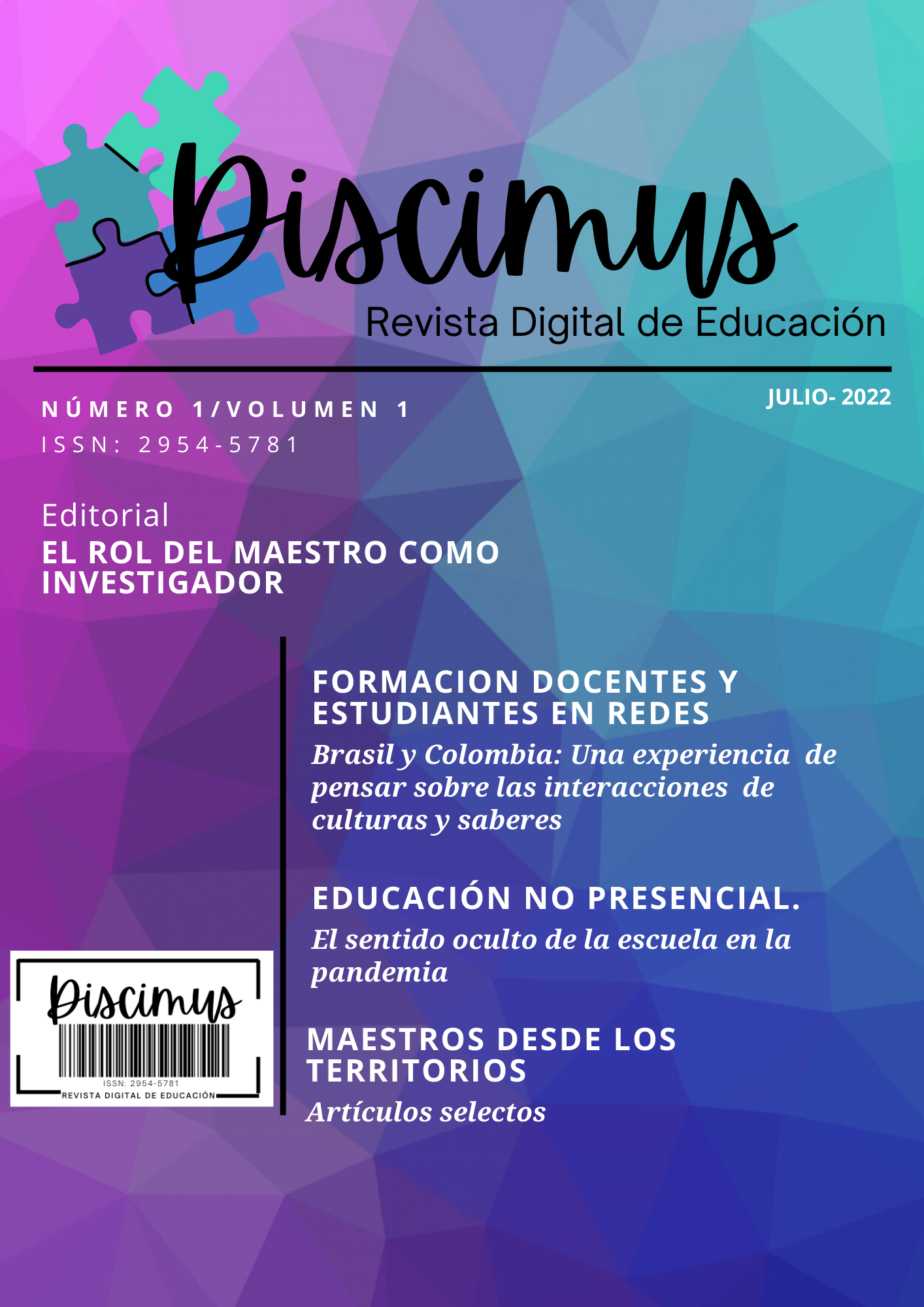Non-presential education. The hidden meaning of school in the pandemic.
Main Article Content
Abstract
This article is part of the analysis of the experiences of the teachers of the Jorge Gaitán Cortés IED School in the face of the transformation of education caused by the global pandemic, Covid -19. To do this, an exercise of discursive analysis and collection of experiences focused on the teacher's work was used. The study is a content analysis based on the Laurence Bardin method that allows to show ruptures, relationships and heuristics when assuming non-face-to-face education in a district school.
Downloads
Article Details
Section

This work is licensed under a Creative Commons Attribution-NonCommercial-ShareAlike 4.0 International License.
Open Access Policy at Discimus Journal
Discimus Journal is committed to the promotion of free circulation of scientific and academic knowledge, simultaneously ensuring appropriate acknowledgment for our authors while adhering to the ethical principles of scientific publishing. In alignment with this goal, Discimus publishes all its articles under the ATTRIBUTION-NONCOMMERCIAL-SHAREALIKE 4.0 INTERNATIONAL CC BY-NC-SA 4.0
How to Cite
References
Andreú, J. (20 de 08 de 2020). Las ténicas de analisis de contenido: Una revisión actualizada. Obtenido de https://www.centrodeestudiosandaluces.es/publicaciones/tecnicas-de-analisis-de-contenido-una-revision-actualizada
Avendaño Rondon, C. C. (2017). La evaluación formativa: La didáctica en la evaluación. Bogotá: Pontificia Universidad Javeriana.
Avendaño, L., Perez, L., & Rueda, C. (2020). La imaginación empática como propuesta didáctica para prevenir las situaciones de violencia escolar entre los estudiantes de grado quinto de las instituciones educativas distritales: el paraíso de manuela Beltrán y Arborizadora alta de la localidad de . Bogotá: Universidad de la Salle.
Carrera, B., & Mazzarella, C. (2001). Vygotsky: enfoque sociocultural. Educere, 41-44.
Doyle, W. (1985). La investigación sobre el contexto del aula: Hacia un conocimiento básico para la práctica y la política de formación del profesorado. Revista de Educación, 29-42.
Leguizamo, A. (2010). Heurística pedagógica para incorporar objetos y recursos con semanticidad en entornos virtuales de formación. Salamanca: Universidad de Salamanca.
Soler Castillo, S. (17 de 08 de 2020). Análisis crítico del discurso y educación. Una interrelación. Obtenido de http://die.udistrital.edu.co/sites/default/files/doctorado_ud/publicaciones/analisis_critico_del_discurso_y_educacion.una_interrelacion_necesaria.pdf
UNESCO. (2010). Informe mundial sobre el aprendizaje y la educación para adultos. Hamburgo: Unesco.





